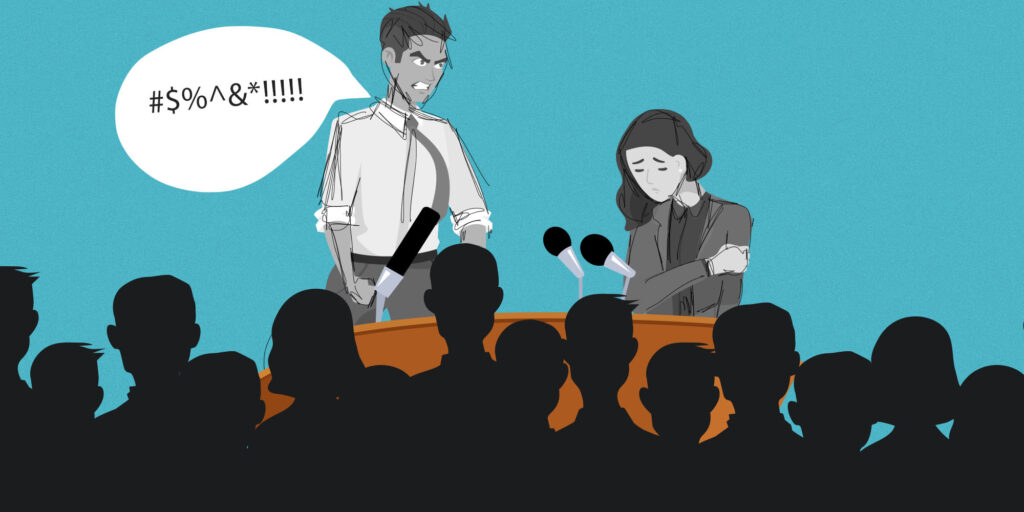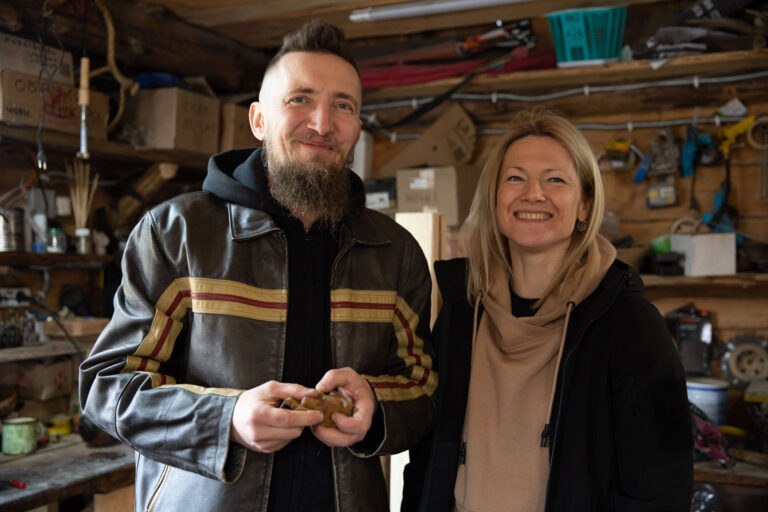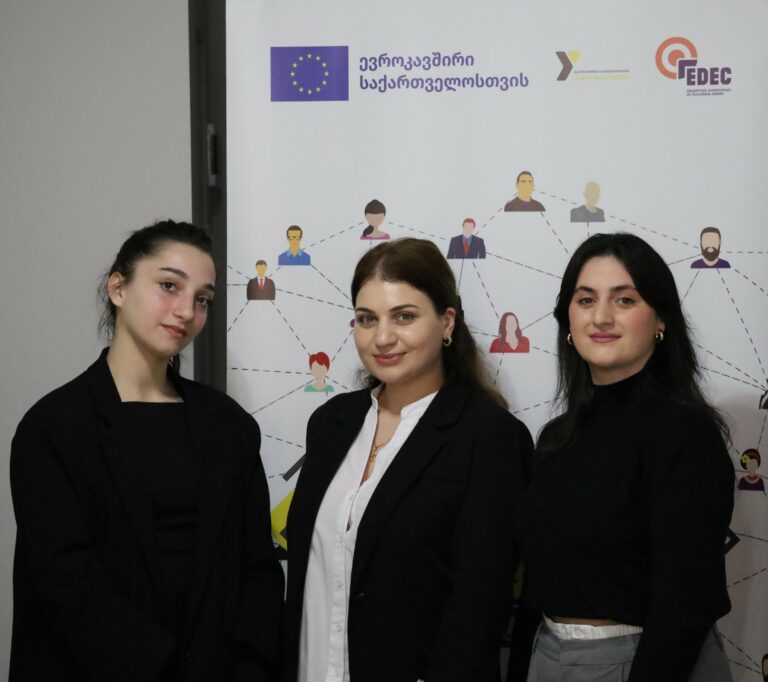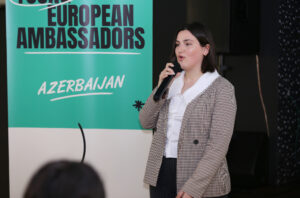
How to act and move on: strategies for women facing discrimination and online harassment
The rise of online abuse, cyberbullying, and discrimination has become a pressing concern across the world, prompting the need for proactive strategies to create a safer digital environment for women. On the eve of Human Rights Day, we explore practical approaches that empower individuals to combat these issues and foster a culture of respect and inclusivity online.
The battle for voice: concrete strategies
“I received, for about two weeks straight, hundreds of tweets an hour dissecting my appearance in every way, making fun of the way I spoke, making fun of the way I looked,” reveals Nina Jankowicz, a disinformation researcher and author of How to Be a Woman Online: Surviving Abuse and Harassment, and How to Fight Back.

She outlined the relentless nature of the digital storm she endured during a recent keynote speech at the EU DisinfoLab 2023 Annual Conference, sharing invaluable insights and strategies to navigate the treacherous landscape of online harassment.
Jankowicz emphasises that trolls thrive on engagement, and advocates a strategic response: mute or block, and move on. “The objective is clear: deny them influence,” she said. In the face of online abuse, Jankowicz encourages women to think about building a robust support network.
She also mentions the broader employment landscape, advocating for sensible policies to support those facing online abuse. In her words, “Employers need to craft sensible policies for employees undergoing online abuse. Moreover, employees need to ask about support policies when negotiating a new job.”
Cyber harassment, cyberbullying, trolling, flaming – these terms are often used interchangeably, with some losing their meaning over time. PEN America, an organisation championing free expression, prefers the terms “online harassment” or “online abuse,” defining them as the “pervasive or severe targeting of an individual or group online through harmful behaviour.”

In their Online Harassment Field Manual, they propose practical strategies to combat online abuse if you are not a target, but have witnessed it:
1. When witnessing online harassment, it is essential to prioritise your safety.
2. Identifying the type and extent of abuse is crucial.
3. Check in with the target, providing emotional support, listening without judgement, and affirming that what’s happening is not their fault reinforces a sense of solidarity.
4. Find the best way to help, offering tangible support, such as assisting in reporting, documenting incidents, or enhancing digital security.
“The solution is to draw attention to the issue”
Human rights and gender equality are core values of the European Union, and they lie at the heart of the EU’s external action. Promoting those values is one of the key missions of the Young European Ambassadors (YEA) network in the Eastern Partnership region.
Young European Ambassador Saadat Aghayeva is also a Youth Ambassador for the UN’s Sustainable Development Goals – specifically SDG5 for gender equality – and HeForShe (the global gender equality movement) programme manager for Azerbaijan. She has experienced systematic online harassment and learned how to deal with it.
“I remember I got several sexting proposals from men without consent and blocked them immediately. Unfortunately, it happens so often to girls and women, because accessibility to the internet also creates space for individuals to engage in online harassment and not take responsibility for their actions,” she said.
Saadat Aghayeva encourages every woman who faces online bullying and harassment to be bold, use their voices, collect proof and report it. “I think it is one of the solutions to draw attention to the issue by involving the community around us, and benefit from legal implications as well!” she insists.
Indeed, more than 50 YEAs recently took part in a Council of Europe training for Young European Ambassadors, engaging them in combating hate speech. This programme empowers young leaders to develop counter-narratives to discrimination, hatred, and racism, using human rights language and taking action against these phenomena with the public.
“I have to say that all the knowledge and tools, as well as some skills I got during the online part of the training, were extremely practical and useful for me,” said Nataliia Balitska, a mentorship facilitator for the YEAs in Ukraine, highlighting the tangible impact of the programme on her day-to-day work.
One notable takeaway for her was the insight into creating counter-narratives based on human rights speech. As Nataliia Balitska eagerly anticipates the offline phase of the training in Budapest, the impact of the online segment is already evident. She has delved into the Council of Europe’s work on anti-discrimination, gained a deeper understanding of the Universal Declaration of Human Rights, and actively contributed her opinions on rights observance in Ukraine.
Challenges for women in journalism
The International Centre for Journalists (ICFJ) has undertaken a global study encapsulated in the book The Chilling: A Global Study of Online Violence Against Women Journalists.
Women journalists participating in the research shared harrowing experiences of online violence, ranging from threats of sexual assault and physical violence to abusive language, harassing private messages, threats to damage professional or personal reputations, digital security attacks, misrepresentation via manipulated images, and financial threats.
The multifaceted nature of these attacks reflects a disturbing pattern aimed at achieving several objectives. Among them are: belittlement and humiliation, as online violence seeks to belittle, humiliate, and shame women journalists, undermining their confidence and sense of self-worth. “The ultimate goal is to induce fear, silence, and retreat, discouraging women journalists from actively participating in public debate and reporting on critical issues,” the authors of the book believe.
The compounding challenge arises from the intersection of online violence with pandemic-era conspiracy networks, disinformation, and political extremism. As these elements meld online, the risks facing women escalate and extend.
The study coincided with the early days of the war in Ukraine, revealing the ominous role of online violence as a weapon of war.
Understanding the terms and protection mechanism
The Universal Declaration of Human Rights (UDHR) underscores equality, stating, “All human beings are born free and equal in dignity and rights” (Article 1). Article 2 enshrines freedom from discrimination, emphasising equal rights without distinction.t
In his foreword to the EU Action Plan on Human Rights and Democracy (2020-2024), EU High Representative Josep Borrell stresses the importance of collective action: “Defending human rights and democratic principles is a collective exercise, not a unilateral endeavour. No country, no matter how powerful and influential, can match the credibility of the international community acting through its institutions.”

He also highlights the challenges of new technologies, warning that, “the speed with which surveillance and Artificial Intelligence technology is proliferating among the world’s worst human rights violators is staggering”.
In this context, the Council of Europe Convention on Cybercrime, commonly known as the Budapest Convention, represents a significant milestone in international efforts to combat crimes committed through the Internet and other computer networks.
The severity of online abuse is visible, as even a single incident, such as a death threat or the disclosure of personal information, can have profound consequences. Additionally, a continuous stream of incidents, or a coordinated onslaught, constitutes a significant threat.
Terms like intolerance, discrimination, stereotypes, and prejudices weave a complex narrative that influences our societies. Understanding these terms is crucial for fostering inclusive communities and combating the pervasive issues that arise from them.
Human Rights Day serves as a reminder that upholding the principles of dignity and equality applies not only to the physical world but also to the digital realm, where the impact of discrimination and cyberbullying can be profound.
Author: Olga Konsevych
Article published in Ukrainian by Tsn.ua
MOST READ
SEE ALSO

‘The Kremlin has entered the chat’: how to protect your personal data on Telegram and avoid the bait of propaganda

No, time is not on Russia‘s side

Socks for Peace: how the Vilni project is supporting internally displaced women in Ukraine

Celebrating traditional Ukrainian cultural identity in Rivne

A hands-on approach to boost youth employment in Georgia
More campaign pages:
Interested in the latest news and opportunities?
This website is managed by the EU-funded Regional Communication Programme for the Eastern Neighbourhood ('EU NEIGHBOURS east’), which complements and supports the communication of the Delegations of the European Union in the Eastern partner countries, and works under the guidance of the European Commission’s Directorate-General for Neighbourhood Policy and Enlargement Negotiations, and the European External Action Service. EU NEIGHBOURS east is implemented by a GOPA PACE-led consortium. It is part of the larger Neighbourhood Communication Programme (2020-2024) for the EU's Eastern and Southern Neighbourhood, which also includes 'EU NEIGHBOURS south’ project that runs the EU Neighbours portal.

The information on this site is subject to a Disclaimer and Protection of personal data. © European Union,











